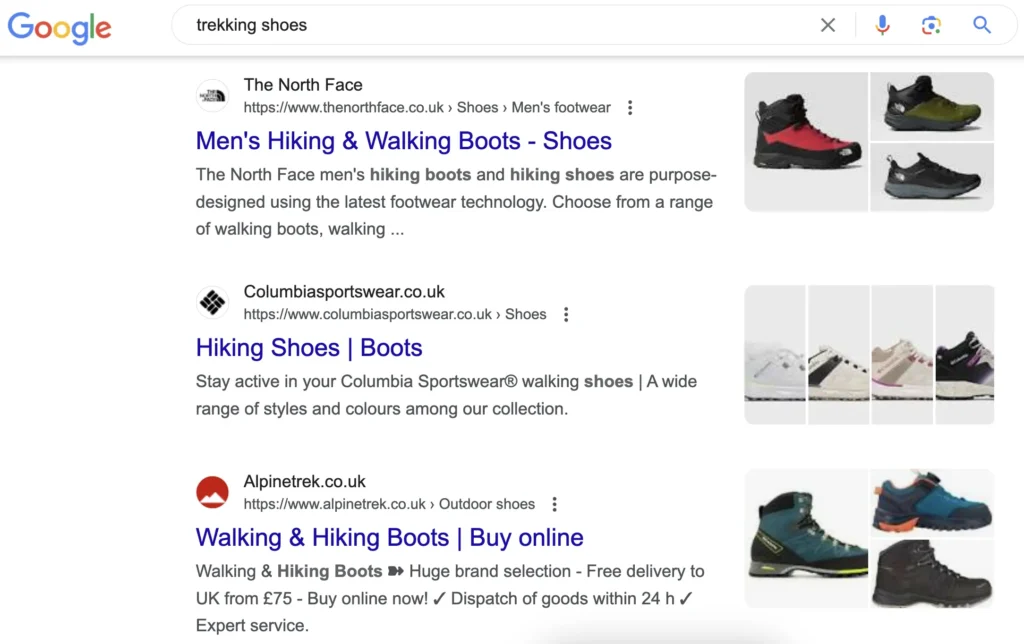
What is paid search: An informative guide
Summary
- Learn what paid search is and why it works
- Understand the benefits of a paid search campaign
- How does paid search compare to organic?
- What do you need to know when considering a paid search strategy?
Paid advertising aimed at users conducting online searches is a key pillar of many firms’ digital marketing efforts. This offers businesses a cost-effective way to raise brand awareness, drive traffic and increase their conversions and it’s something every business can benefit from, regardless of size or sector.
Adopting paid search strategies gives you access to a huge audience of potential customers. For example, did you know that, according to Semrush:
- There are 5.9 million Google searches every minute.
- For every £1 an advertiser spends on Google Ads, they see £8 in revenue – that’s a 700 per cent ROI.
- Google Ads have an average conversion rate of 7.04 per cent across all sectors.
Therefore, it pays to have a good paid search strategy. But what exactly does this involve, and how can you be sure you’re getting the best results? Read on to learn more.
What is paid search?

Paid search is a type of digital advertising that lets companies pay to appear within search engine results pages (SERPs) for a given keyword. They can be seen at the top of most Google searches, above the organic results, and are clearly marked as ads to users.
The most common form of paid search is pay-per-click, or PPC. As the name suggests, this means you only pay for ads that a user actually clicks on. PPC and paid search are sometimes used interchangeably, but there are other payment models to choose from, including cost per mille (CPM), where advertisers are charged for every thousand impressions they receive, or cost per acquisition (CPA), which is based around the number of conversions an ad leads to.
Google search is the number one platform for paid search through its Google Ads platform. You may still occasionally hear this referred to as Google AdWords, the service’s former name. However, this is far from the only place you can use your ads. As well as competing search engines such as Bing, paid search is also available on social networks such as Facebook and LinkedIn, while the Google Display Network extends PPC advertising to a wide range of partners and other Google services such as Gmail and YouTube with both search and display advertising.
Paid search vs organic search

The counterpart to paid search is organic search. This refers to the position where your web pages appear in SERPs based on the search engine’s algorithms, without the need to pay for an additional boost. There are a wide range of efforts that businesses can undertake in order to improve their organic search position, but these require a different set of skills to paid search and can take more time to bear fruit.
It’s best not to treat paid vs organic search as an ‘either/or’ decision. Instead, a good search engine marketing strategy should incorporate both efforts, with a comprehensive search engine optimization (SEO) strategy being used to drive your web pages up the organic SERP rankings. This not only means you may have to depend less on direct paid advertising to gain traffic, but it also boosts your firm’s overall standing online.
However, there are occasions where the fast results of paid search will be preferable to the cheaper option of focusing on organic search. A good digital marketing provider will be able to advise on this and formulate a mix of paid and organic efforts specific to your unique scenario and goals.
What are the benefits of paid search?
Paid search offers businesses a range of advantages. It generally delivers faster results than a focus on organic SEO and you can tailor your ads to target as wide or narrow an audience as you like, depending on the goals of your campaign
Among the major benefits firms stand to see from adopting a paid search strategy include the following:
- Cost-effectiveness – Paid search typically delivers a very strong return on investment and can be started with a relatively small amount of spending.
- Improved brand awareness – Paid search can be used in a number of ways, but having your name at the top of relevant search engine results is great for visability, even if users do not immediately click through.
- Quick wins – Paid search provides fast results, with typical PPC campaigns starting to deliver within a couple of weeks. This is perfect if you need a quick boost to your visibility, such as for a time-sensitive campaign.
- Tailored targeting – As well as targeting specific keywords, a good paid search campaign should narrow down your audience to only those most likely convert. This may include focusing on demographics, interest or location to increase the odds of success.
- Measurability – The range of metrics available on the likes of Google Ads make it easy to see which of your efforts are performing best. This makes it simple to conduct activities such as A/B testing and quickly adjust your paid search strategy to react to these insights.
Should you consider using paid search?
While the benefits are clear, there are a range of considerations that must be taken into account before embarking on a paid search strategy. For starters, you need to make sure you have a strong understanding of your objectives, as well as your intended target audiences and which search terms you wish to bid on.
If you go into this without this knowledge, it will be difficult to plan a coherent strategy and you may not see the results you’re expecting. However, you should certainly consider using paid search if your goals include any of the following:
- You want immediate results
- You currently have poor organic rankings
- You want to boost your website traffic
- You have a specific new product, service or event to promote
If you’re unsure about whether or not paid search is right for you, consider partnering with an expert marketing services agency like Axonn. We’ll be able to advise on the best places to focus your budget based on your unique circumstances and goals, whether this is a paid search campaign, display advertising, paid social or an organic SEO campaign.
Get in touch today to learn more.
We’d love to hear from you,Get In Touch.
